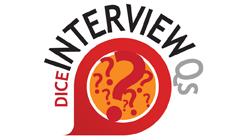- What Most People Say: “Naturally, saving the company money is my primary objective. So I usually start by evaluating their current system. In most cases, I’m able to spot opportunities right off the bat. From there, I implement my standard suite of solutions which are guaranteed to optimize and improve any network and systems.”
- What You Should Say: “While saving money is important, I never take a one-size-fits-all approach. The first thing I’ll do is truly listen to end users’ questions, concerns and ideas about how to improve their current systems. What I think versus what the user actually wants could be two very different things, and it’s important to be on the same page. My goal is to make sure that everyone in the organization understands and supports my optimization plan.”
- Why You Should Say It: Yes, you’re the expert—but taking a my-way-or-the-highway approach will turn off the hiring manager. Communication is key in letting the users know that you are there to help make their lives easier, not add to their workload. Listening to users will help you understand where the problems lie and where to begin your analysis.
- What Most People Say: “I always use the same approach, it seems to work regardless of the company’s size or the results they’re seeking.”
- What You Should Say: “Smaller companies tend to prefer a more personal approach in analyzing their needs. Cost is often a major issue, so you have to be flexible. For instance, you have to be willing to work with older hardware, stagger software upgrades and infrastructure changes, etc. On the other hand, companies with large, enterprise environments usually have ample cash and so they put less emphasis on budgets because they’re more concerned with productivity and lowering operating costs. Another consideration is the number of internal and external resources that will be required for implementation. This ties in closely with cost, as you are now taking individuals away from their daily duties. I’ve been successful working with both small and large companies, would you like to hear some examples?”
- Why You Should Say It: System optimization is all about the end result, but how you get there varies. If you know how a company’s environment is structured, by all means, tailor your answer toward the manager’s needs.
Upload Your ResumeEmployers want candidates like you. Upload your resume. Show them you're awesome.
- What Most People Say: “I have a wide array of technical abilities because I’ve worked with a lot of different hardware and software. Plus, I’m a hard worker. I’m honest and I work well with others. My colleagues think I’m a great team player.”
- What You Should Say: “I’ve evaluated network protocols and hardware/software requirements for networks that serve 25 to over 3,000 users. I’m familiar with a variety of Windows operating systems as well as Linux. My technical specialties include working with enterprise-level networking components such as tiered level firewall systems, L3 routers, smart switches, access points and controllers, Web filtering systems and SMTP gateways. I also have considerable experience working with VPN concentrators and VMware View remote access, as well as tiered storage area network backup systems and cloud backup systems. However, what distinguishes me from other systems analysts is that I always take an open-minded approach in determining what system fits the needs of each specific company and I love tackling the implementation step-by-step. It’s a true passion of mine.”
- Why You Should Say It: Any time you can associate passion with work, you instantly stand out in a recruiter or hiring manager’s mind.
